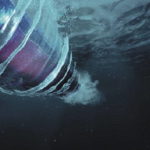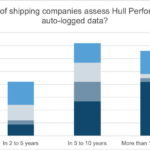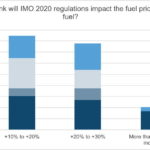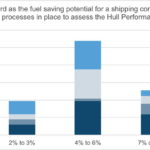The danger of speed regulations and the foreseen increase of fuel prices underline the need for more efficient ship operation. At the HullPIC coference, shipping companies, suppliers and service providers sensed the need to work closer together to be stronger in the future
Go, thought, on wings of gold«, is sung by the prisoner chorus in Verdi’s Nabucco, which is seen by some[ds_preview] people as the second national hymn of Italy. Taking place this year in the small medieval town of Gubbio, the spirit of this song could be felt throughout the HullPIC conference 2019. The »thought« was that companies in the shipping industry need to cooperate more. Be stronger together, as efficient ship operation is complex.
The »wings of gold« were the wonderful venue, a traditional hotel in the heart of the Italian countryside. This town seems to get some sort of history in shipping as well, since Prof. Volker Bertram has organized conferences here before. But who are the prisoners singing the song?
Maybe technical experts imprisoned by the need of their companies for commercial success? Well, it is rather the human limitations of dealing with the complexity and the number of unknowns that can be felt as an imprisonment.
Most of the participants at the conference were the shipping company experts in the field of hull and propeller performance. The maritime industry is making progress, but there is still a long way to go. »We are in the phase of early enlightenment«, said Volker Bertram.
Better analytics start with having better data. Unfortunately, this seems to take time for the world’s fleet. Figure 1 shows the result of one of the questions posed in a survey during the conference. Predominantly participants believed that it will take five years or longer before most shipping companies will assess performance through auto-logged data. Technical experts working for ship operators are more pessimistic than others. The program revealed insights from various stakeholders in the wide field of performance analytics and biofouling. The topics included how to improve data acquisition, avoid fouling, operate more efficiently, take advantage of artificial intelligence, recent studies from model basins and CFD experts, as well as how to quantify the savings which are supposed to be achievable.
Overall the program was well balanced and included latest developments within the industry as well as all the »big topics« management is talking about. »We started discussing already in the first HullPIC conference (2016) digitalization, big data and artificial intelligence. These are nowadays all hot topics in the industry,« said Geir Axel Oftedahl (Jotun), co-organizer of the conference.
The presentations were held from experts for an audience, quite experienced in the field. »When I came to HullPIC three years ago, I was relieved that all had similar problems; now I can see that the discussions are moving to the next level and our industry can deliver practical solutions,« said Daniel Schmode from DNV GL. The level of professionalism was high and the service providers as well as the suppliers rather tried to impress by their expertise than by a standard sales pitch. This led to a cooperative atmosphere. Martin Köpke (Fleet Support Center, Hapag-Lloyd) summarized a widely felt sentiment: »I had many good conversations and learned a lot.«
Trust and transparency are two keys to success for improving hull and propeller efficiency. Jean-Marc Bonello (University College London) explained that in a typical charterer–owner relationship: lack of transparency from the owner and lack of trust from the charterer result in significant costs for both, not to mention the environment. His take was that better contracts remain a need within the industry.
There was wide consensus that by focusing on hull and propeller performance, shipping companies can reduce costs significantly. Figure 2 shows that more than 50% of the participants believed 4%-6% fuel savings were possible by having digital processes in place.
Standardization remains key
Using high-end paints and retrofits can lead to even higher savings, albeit at a cost. A challenge is that investors as well as management do not trust promises anymore. Proving the value of technology outside of simulations and model tests is a must. ISO 19030 has matured and is increasingly accepted as a reference for measuring fuel savings in full-scale monitoring.
Standardization has led to great improvements in logistics and ISO 19030 has added a lot of value to data analytics in the maritime industry. Whether it is time for a review of the standard shall be discussed in the next HANSA issue.
Data analytics and better contracts are not the only fields one should look at when aiming to reduce emissions and fuel consumption. Johnny Eliasson (Chevron) is part of a working group of NACE International, which supports organizations in harmonizing guidelines. Related working groups focus on creating standards for diver reports and hull cleanings. Standardization in these fields is under way.
A lot of such improvements will be needed to reach the long-term goals of IMO on CO2 emissions. »Evolution has to come,« says Johnny Eliasson (Chevron). For this, more trust, more transparency and a closer collaboration between all stakeholders will be the key to success.
Author:
Idealship GmbH
Richard Marioth




















